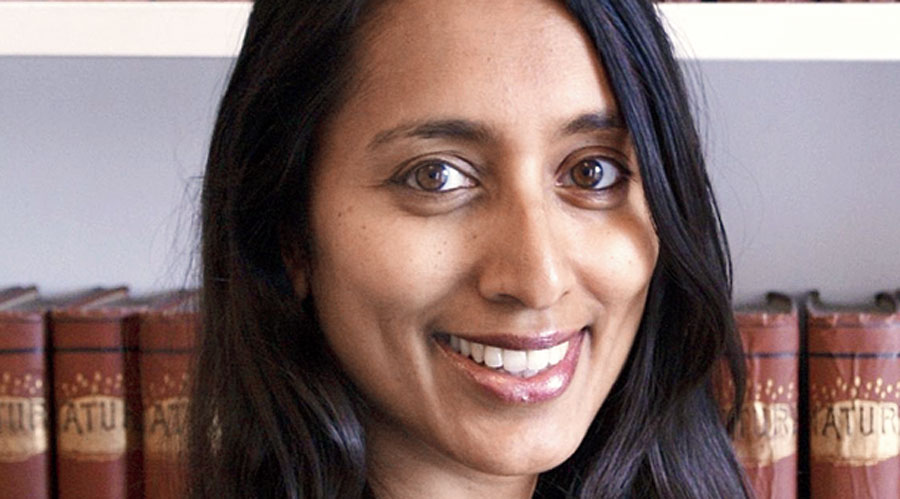Maheshi Ramasamy, one of the women scientists behind the Oxford vaccine, gave a good reply when a BBC presenter expressed his surprise: “My God, science is cool now!”
Ramasamy, who has been the lead in the adult clinical trials of the vaccine, laughed: “I have always thought science is cool.”
In a way, it is not surprising that Ramasamy, 43, who was born in Sri Lanka and is the daughter of two scientists, took up science as a career.
Her mother Samaranayake Ramasamy and father Ranjan Ramasamy met when they were science students at Cambridge. In time, their daughter read medicine at Christ’s College, Cambridge, and did her DPhil at Wadham College, Oxford.
On Wednesday, British regulatory authorities approved the use of the AstraZeneca-Oxford vaccine, which is expected to be used in many countries including India because it is cheaper and easier to store and transport.
The British media have stressed that the Oxford team, although it does have men, is dominated by women and suggested their success might encourage young girls across the world to take up science.
On Thursday, the Daily Mail, which focuses on women readers, carried a tribute to the Oxford team whose discovery of a vaccine in less than a year has been described as a “British triumph” by Prime Minister Boris Johnson and his senior ministers.
As the Mail celebrated five of the “women involved in production of the Oxford vaccine”, its take was a little different: “All hail the wonder women who’ve put us on top of the world! Brilliant, dedicated, courageous... inspirational story of the team behind the Oxford vaccine.”
There is bound to be a movie sooner or later on the how the women raced against time to come up with the vaccine. The Covid crisis in Britain is not getting any better, with 981 deaths — almost as high as the peak reached in April — reported on Wednesday. Much of the UK was moved into the “Tier 4” category of the tightest restrictions on Wednesday.
Even The Sun, which generally does not devote too much space to science, got in on the act: “The Oxford science team behind our home-grown Covid jab represent the very best of British scientific genius.”
It went on: “They pulled out all the stops to produce this game-changing treatment in record time…. Many are brilliant women who are as vital to our futures as the frontline NHS doctors and nurses.”
Other than Ramasamy, the Oxford team includes its leader and main designer Sarah Gilbert, “58-year-old mother of triplets”; biologist Catherine Green, “who created the cell culture from which the first doses were made”; lead investigator Teresa Lambe who has been “working through the night in my pyjamas in my bedroom”; and Elisa Granato, “a microbiologist who, following preliminary tests on animals, became the first human to receive the vaccine”.
Ramasamy, consultant physician at the Oxford University Hospitals NHS Foundation Trust and lead tutor for graduate medical students at Magdalen College, appears to have a quality not always apparent in scientists — an ability to explain complex issues in simple language which ordinary members of the public can understand.
For example, a few weeks ago she came across as a natural as she explained on television: “As you get older your immune system doesn’t work quite as well — it doesn’t respond to infections as well as it used to. That’s why elderly people are more vulnerable to infections — it generally doesn’t respond quite so well to vaccines. It’s really encouraging that our vaccine does seem to stimulate the exact same immune responses in the elderly as it does with the young.”
As a consultant physician, she treated patients when Covid first hit.
“It was terrifying. You’re used to being the expert but people were dying. We didn’t know how to treat them,” she said.
“As a physician, I’m used to patients sometimes dying but usually we could give them a ‘good’ death, with symptoms well controlled and their families around them.
“This was different. I couldn’t sit on their bed, or hold their hands and they couldn’t see our faces. Their families weren’t allowed in.”
Ramasamy, the mother of three children aged 15, 13 and 10, added: “You can’t lose it at work. I’d get home to my husband, an oncologist, who understood, and just cry.”
November 22 was actually the big day for Oxford’s women scientists. That was the day, “forever etched in their memory”, when they received calls confirming their vaccine was effective.
Ramasamy told the Mail that she was ironing her children’s school uniforms when the news came.
“I wish I could say I did something crazy, like opening a bottle of champagne, but I was just so exhausted that I went to bed,” she said.
“But my kids were so excited that they did a little dance in the kitchen.”











